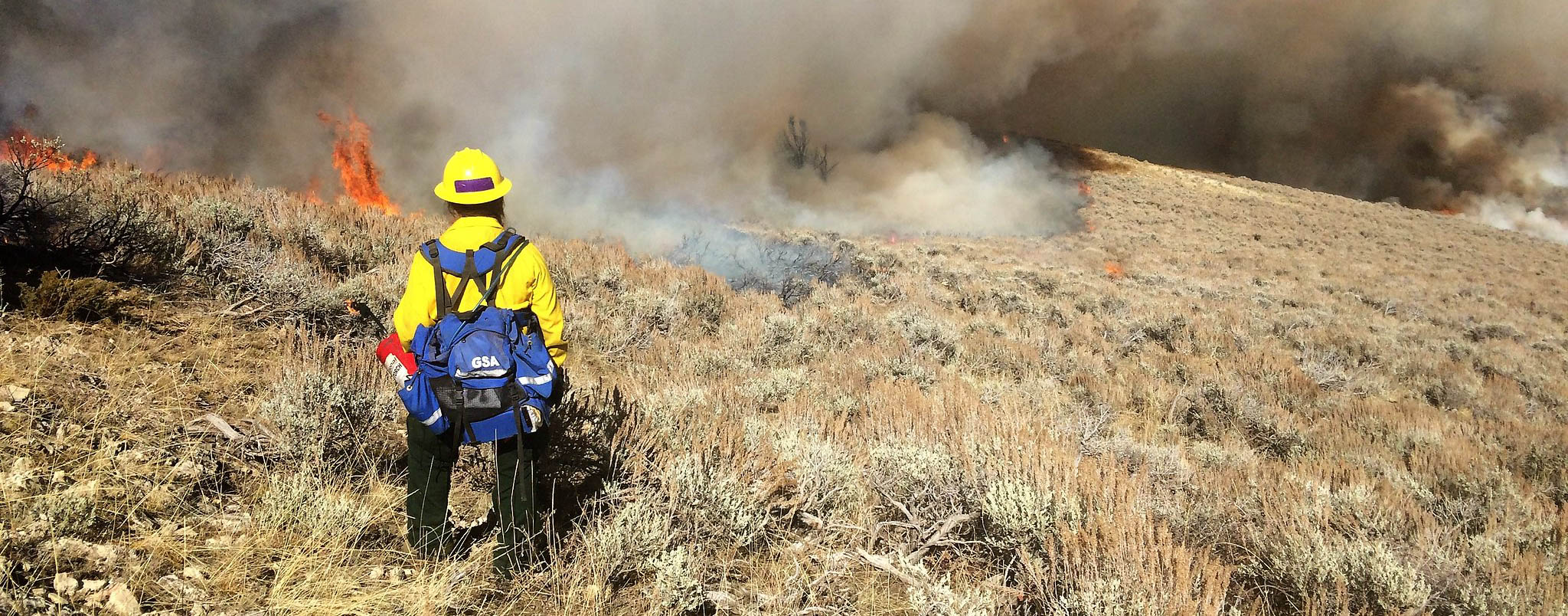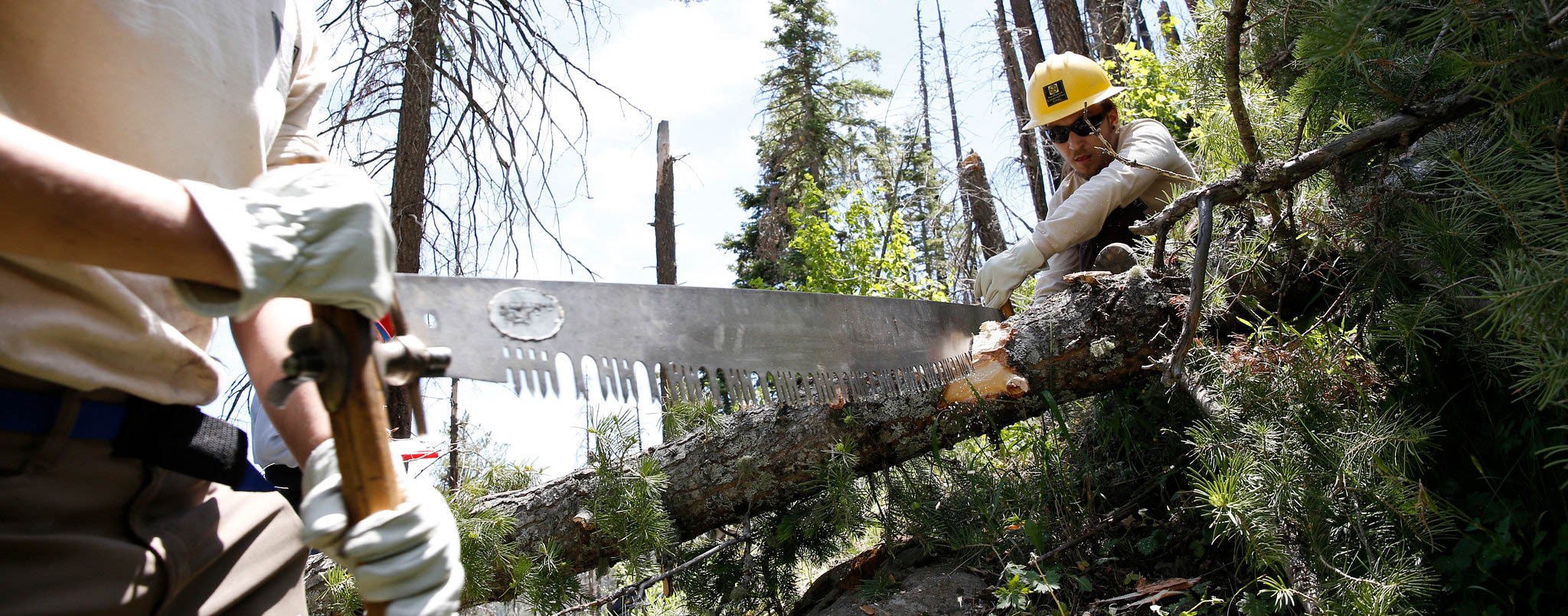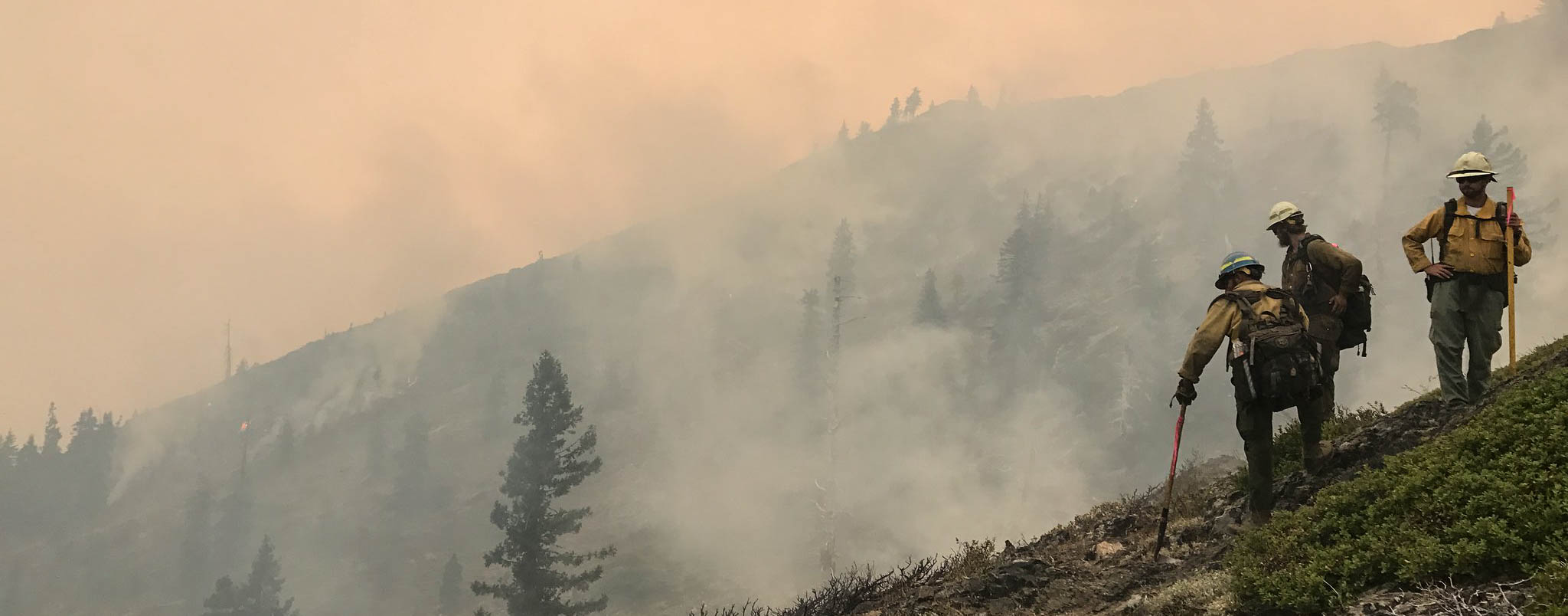Service Beyond The Military: Conservation Legacy
A few months ago, I found myself doing something I never anticipated: after six years of active duty, I left the Marine Corps infantry. Everyone I knew was shocked. Peers, friends, and leaders said, “I always thought you were a lifer!”. I would be lying if I said they were wrong. I even submitted a commissioning package before deciding to get out, but something just didn’t seem right about the timing.
I was on the yellow footprints at MCRD San Diego exactly 10 days after my high school graduation. I had spent my ENTIRE adult life in the Marine Corps. After six years, I checked nearly every box I set out to when I started. I liked the people I got to work with, and loved teaching Marines, from marksmanship to hand to hand combat. But something was eating at me. Did I really like the job, or was it simply all I had ever known? Somehow, I had almost as much gray hair as Doug at the age of 24, so I jumped ship.
Many people try to detach entirely from the military and relax after active service. That wasn’t for me. After 3 weeks enjoying terminal leave in Texas and reuniting with old friends, I was restless. I had spent the last six years having the speed of my life throttled up by the Marine Corps. The last thing I felt like doing was slowing down. If anything, now was the time to shift to fifth gear. But I did not know where should I jump next.
Law enforcement was not the answer. As the son of two state troopers, I have an incredible amount of respect for police officers. Their job becomes more difficult with each passing year and they are faced with decisions that burden them daily. But I’ve never been one to obey the rules, much less enforce them, and have been informed on more than one occasion by my leadership that I have an “attitude problem.”
I also considered a stint in the National Guard, but decided against that as well. Nothing against the organization, but I can’t quite bring myself to completely cut ties with my beloved Corps. I drank way too much Kool Aid and the Ghost of Chesty Puller would never look me in the eyes again if I switched branches.
I still wanted to be among men of action though, and I still wanted to serve my community. So the logical choice was firefighting. Yet a four month academy seemed like far too long to wait to start working. Were there other options?

Thus began my journey into the world of wildland firefighting. I wasn’t completely new to it. As a native of Arizona, I remember being a kid when the whole state had memorial services for the nineteen Granite Mountain Hotshots who perished in the Yarnell Hill tragedy. I didn’t hear about it again until seeing the movie “Only the Brave” on the plane ride home from Afghanistan. That film immediately lit a spark in me. If I was going to be a civilian, that was the job I wanted to do.
Unfortunately, I EASed in September, just as the fire season was winding down. I would have to wait at least 6 months before the next one. I had a job lined up for the next year, and was working one in Texas, but this was something I wanted to pursue now. How could I do that? A few quick job searches in my home state answered that question.
I discovered Conservation Legacy, an organization that did project work to preserve national parks and forests and historical sites across the country . After digging through their site for a bit, I discovered they had a veteran’s fire crew program, designed to get you the certifications required to give you a leg up in getting into the wildland fire world. Conservation Legacy also provides some experience doing some fire prevention projects and possibly some prescribed burns. More than that, you get to work on an all vet crew, admittedly for minimal pay but you get an education award if you complete any of their terms of service, a nice kicker for those looking to maximize their GI Bill and still get other certifications. It would almost be like I never left the military. How could I turn that down?
The job posting dates indicated that the season would start in three days, but I decided to apply anyway. What could it hurt? Two days later, I got a phone call saying that if I could get to the office in Tucson the following afternoon, I would have a spot on the crew. I could have said no and stuck with the work I already had lined up, but does that sound like the “Die Living” ethos to you? I threw everything I owned in my truck, and made the 13-hour overnight drive back to my home state.
After a week and a half of chainsaw training and fire classes, I was off to work, if you can call it work. Aside from your tent and field essentials (remember your baby wipes!), everything, from your food to the training, is covered through the organization.

I was having the time of my life; camping outside, enjoying the beauty of northern Arizona, chopping down trees like a lumberjack, putting all those workout programs to good use carrying logs and running a saw all day, all with an amazing group of people. On the crew, we had a National Guard combat engineer who quickly proved himself to be one of the toughest men I’ve ever met, an Army infantryman from upstate NY, and someone who had hiked the Appalachian Trail and intended to hike the Arizona trail upon completion of the season. As a bonus, one of the Forest Service permanent fire technicians also happened to be a former Marine grunt who had been at the Marine Corps Air Ground Combat Center in 29 Palms on 9/11.
While the characters that I ran into through this program were incredible individuals, the primary benefit was gaining the necessary certifications and work experience required to get onto a wildland fire crew with the US Forest Service, Bureau of Land Management, or any of the other agencies that work to suppress and prevent wildfires in our country. Conservation Legacy is also an excellent opportunity to expand your network within them, as most of the projects are run by those agencies. Fast forward six weeks, and not only do I have all of those certifications, but a Hotshot crew was calling to offer me a spot for the following season.
An additional benefit is that you get to protect and preserve the outdoors that we all enjoy. Conservation Legacy has a policy of “leaving no trace” of their presence when out and about, and works to help prevent their share of hazards without being too invasive. Their mission to complete conservation and community projects for the public benefit seems to be a perfect fit for individuals in the SOFLETE family. And if you are not prior service, don’t worry. Civilians can get positions on chainsaw only crews, or as veteran crew leaders (so we don’t try to fight each other with the tools).

My experience with Conservation Legacy has definitely been a positive one. I wanted to share it because, astoundingly, many veterans have no idea that it exists, or about the ease of transition from the military to the Forest Service. This is a prime example of a program you can use to get to where you want to be in life. The work that we did was gratifying and the networking opportunities were definitely worth it. Veterans looking for purpose can use programs like this to get where they want to be. Don’t wait. Time is a finite thing and it should not be wasted waiting for opportunities to come to your door. There’s no dotted line to sign. You can try this term out, work a few fire seasons, or make a new career out of it. Don’t let opportunities that will give you valuable life experiences pass you by. Jump into them full speed, get out of your comfort zone, and die living.
Frank Gonzales is an avid practitioner of Jiu Jitsu, a mediocre endurance athlete, and a connoisseur of fast food. He has spent most of his life being told he "doesn't look Mexican", but knows exactly where the best street tacos are everywhere he goes. He has been a Marine infantryman, a conservation Corps fire crew member, and a ditch digger in Mexico. In his spare time, he rereads "Gates of Fire" and hikes through the wilderness of southern Arizona.





